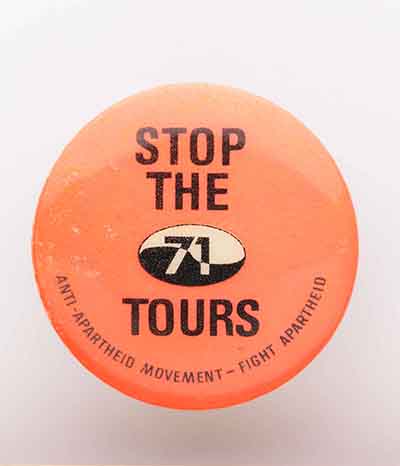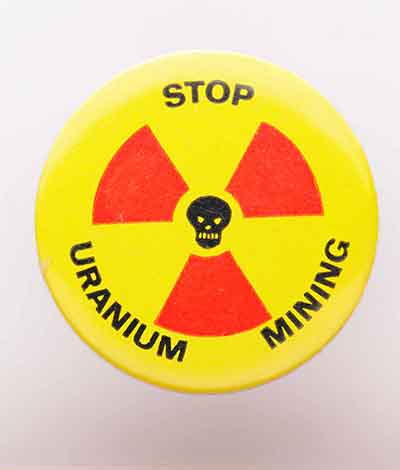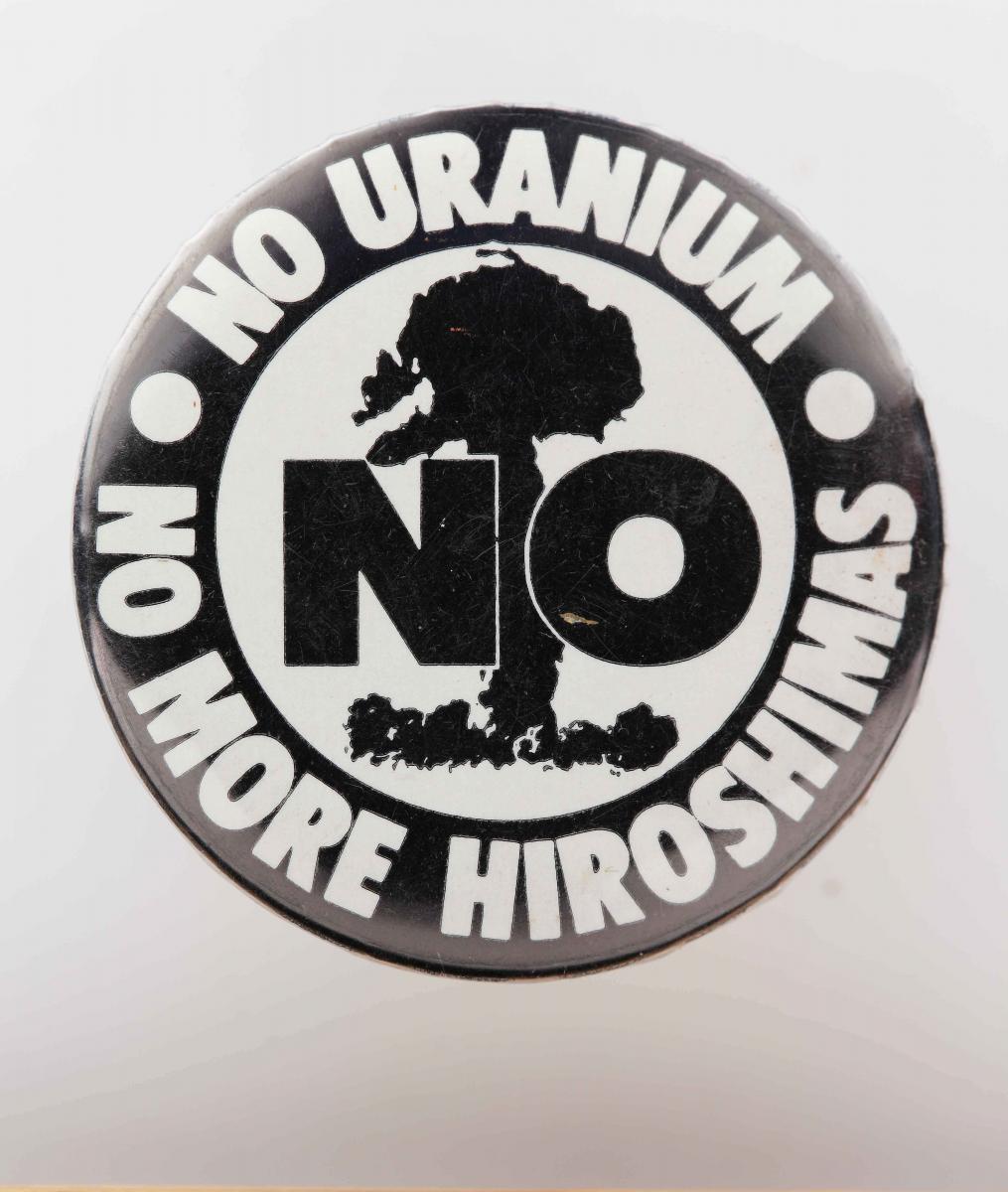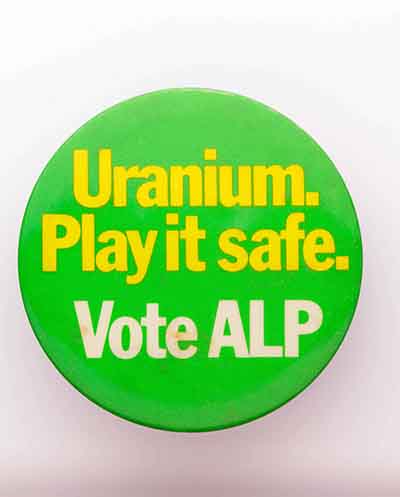Political badges, buttons or pins have existed for centuries, and early badges were usually made of cloth and sewn on garments. Since then, various methods have been used to create badges from lithographing through to modern day graphic design. Collecting these badges has remained a popular hobby and Fryer Library holds the collected badges from Judith Campbell (F3338). The badges have been digitised and can be viewed in UQ eSpace.
These particular badges reflect the political and cultural climate of Australia during the late 1960s through to the 1970s. One badge within the collection is “Stop the 71 tours. Anti-apartheid movement – Fight apartheid”. This badge was created around the time of one of Brisbane’s most remarkable protests, anti-apartheid demonstrations held against the South African rugby team tour in 1971. This was during the height of anti-apartheid and the then Queensland State Premier, Joh Bjelke-Petersen, declared a month long state of emergency due to the protests.

Amongst the collection are a number of anti-uranium protest badges, which were created following the then Prime Minister Malcolm Fraser’s decision to expand uranium mining. The anti-uranium movement was used by the Australian Labor Party (ALP) as a part of their 1977 election strategy.



Anti-uranium badges from the Judith Campbell collection F3338
Other significant badges in this collection include a Richard Tipping (Aboriginal design) badge, a Communist Party of Australia badge, and a badge from the Women’s Electoral Lobby. You can view more of Judith Campbell’s political badge collection on UQ eSpace.